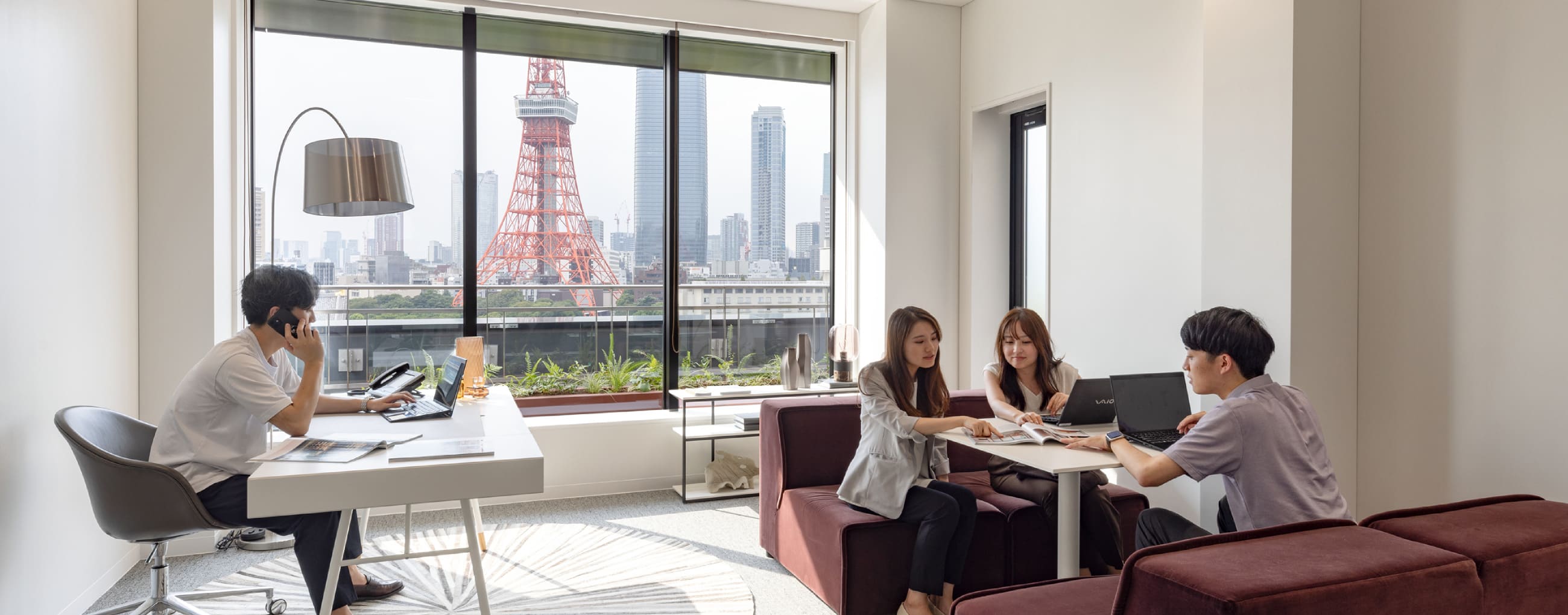People’s responses to their environment can be as varied as their personalities, meaning that offices should be flexible
With seven in 10 of those who could work from home now spending at least some of their week in the office, companies are again seeing the increase in productivity made possible when people work together.
The return to the office has renewed focus on customising office environments to encourage workers to collaborate and innovate to create a competitive edge. No standard office set-up suits every employee, team or company, so enabling flexibility over how workplaces look and feel can be empowering and inspiring. This can be especially true for start-ups or new overseas operations, where resources are often limited and needs may alter rapidly.
The importance of understanding varied preferences is underlined in a white paper by the European Commission, The Role of Individual Differences in Flexible Ways of Working. This report describes the concept of person-environment fit that companies should examine when deciding where, when and how work can be done. The white paper states that factors such as the workplace layout and light levels, temperature and noise, along with privacy options, can affect individuals differently. These factors shape productivity, creativity, health and happiness.
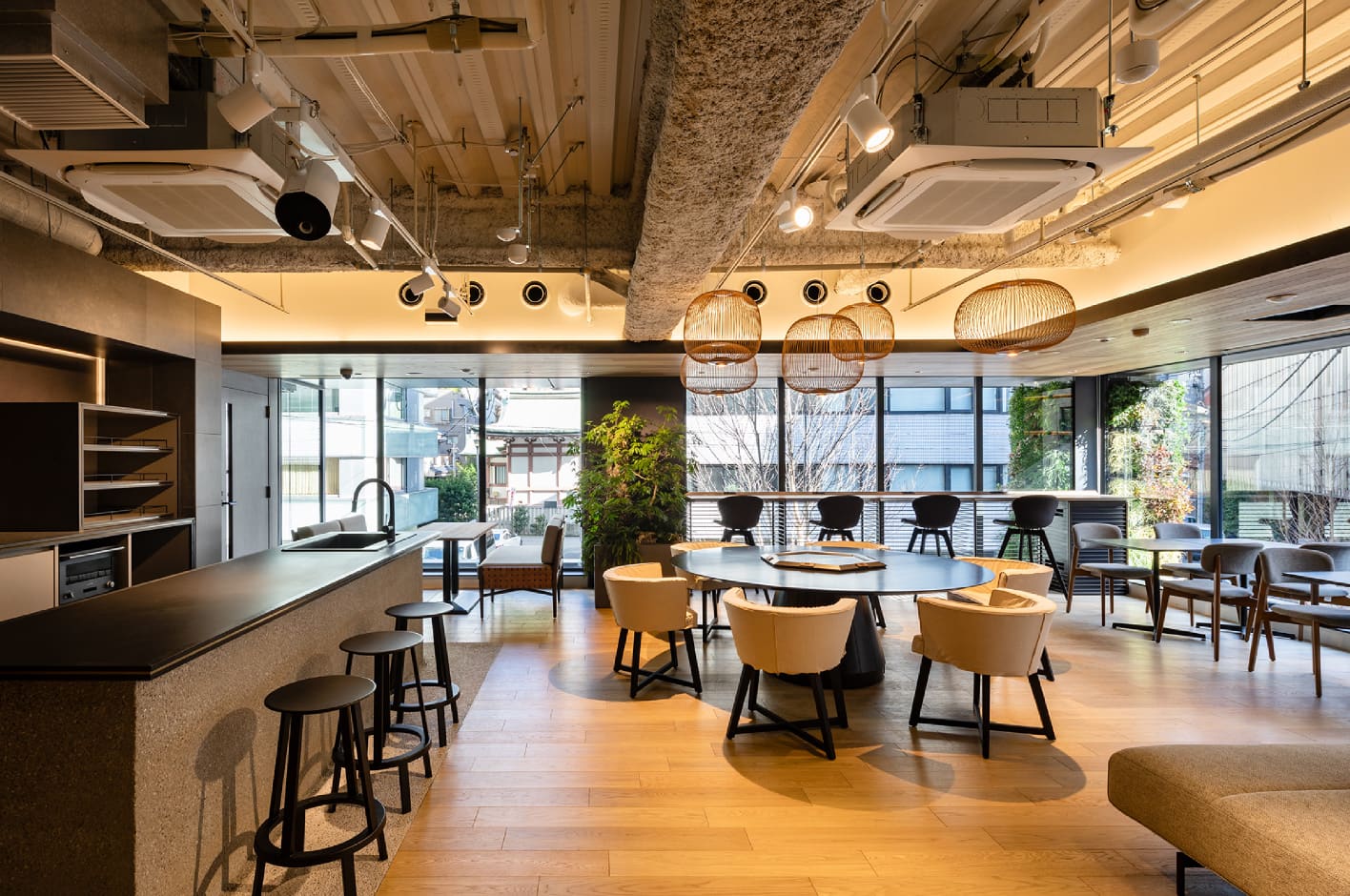
One example of a supportive and inclusive person-environment fit is that quiet, enclosed spaces benefit all workers engaged in highly complex tasks but are crucial for those who have a greater need for privacy. This latter group will do better when able to work in peace. The study suggests that “the organisational culture and leadership style should foster divergent ways of working, respecting individual choices.” As businesses establish themselves, increasing awareness of what this means for a company or teams within it may require changes to the office set-up.
Celebrating difference
The ideal workspace, then, is one that can accommodate such differences flexibly. H¹O, an office rental firm founded by Nomura Real Estate, wants to make this ideal a reality. Its workspaces can be customised by configuring rooms to match individual team or company needs and by adjusting air-conditioning room-by-room according to personal preferences. Companies can either use furniture provided by H¹O, kit out offices entirely according to their own taste or combine both. H¹O meeting rooms can offer a range of potential working environments, adapting to changing needs, a particular project or even the requirements of an individual employee on a given day.
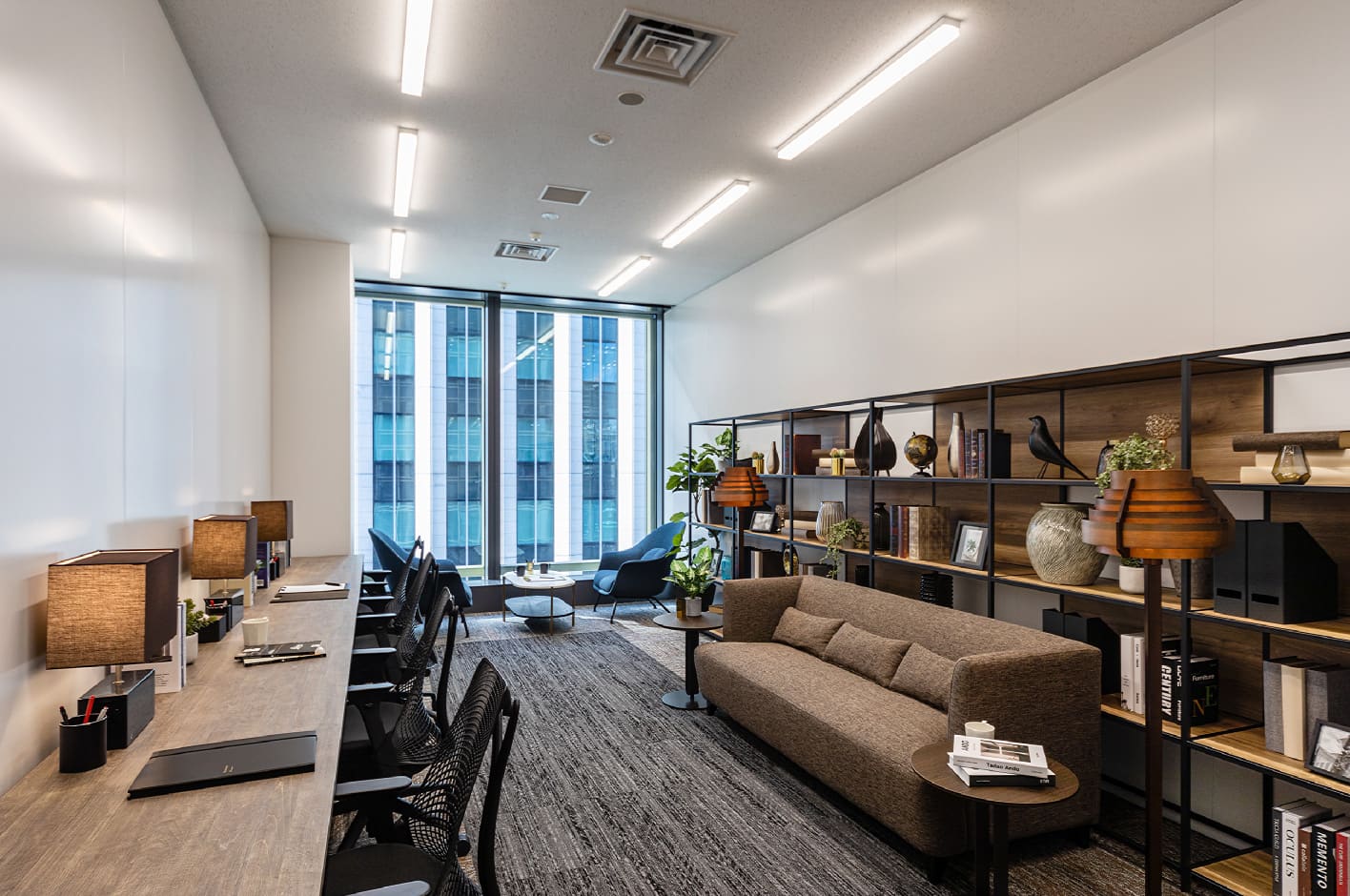
“Our aim at H¹O is to flexibly meet the needs of businesses as they flourish and grow, providing workspaces that are optimally sized for expansion and comfortable for all employees,” says Yuki Furusawa, H¹O senior manager, office building department at Nomura Real Estate. “In addition to the actual workspace, our goal is to address a variety of challenges by delivering appropriate ‘soft’ services such as seminars and networking events for employees and management to help ventures stay nimble and responsive to ever-changing business landscapes.”
At the heart of H¹O is the culture of a “human-first office”. This concept aims to maximise individual potential and creativity and support business success by providing an environment conducive to health, comfort and wellbeing. It includes promoting wellness and supporting mental and physical health through communal lounge areas where workers can relax and recharge, as well as ensuring the availability of healthy food. Another defining element of the offices is “biophilic design,” incorporating nature into its spaces through abundant areas of greenery in offices and on rooftops, alongside using water, light and wind. Such designs have been shown to boost creativity, productivity and feelings of wellbeing among employees.
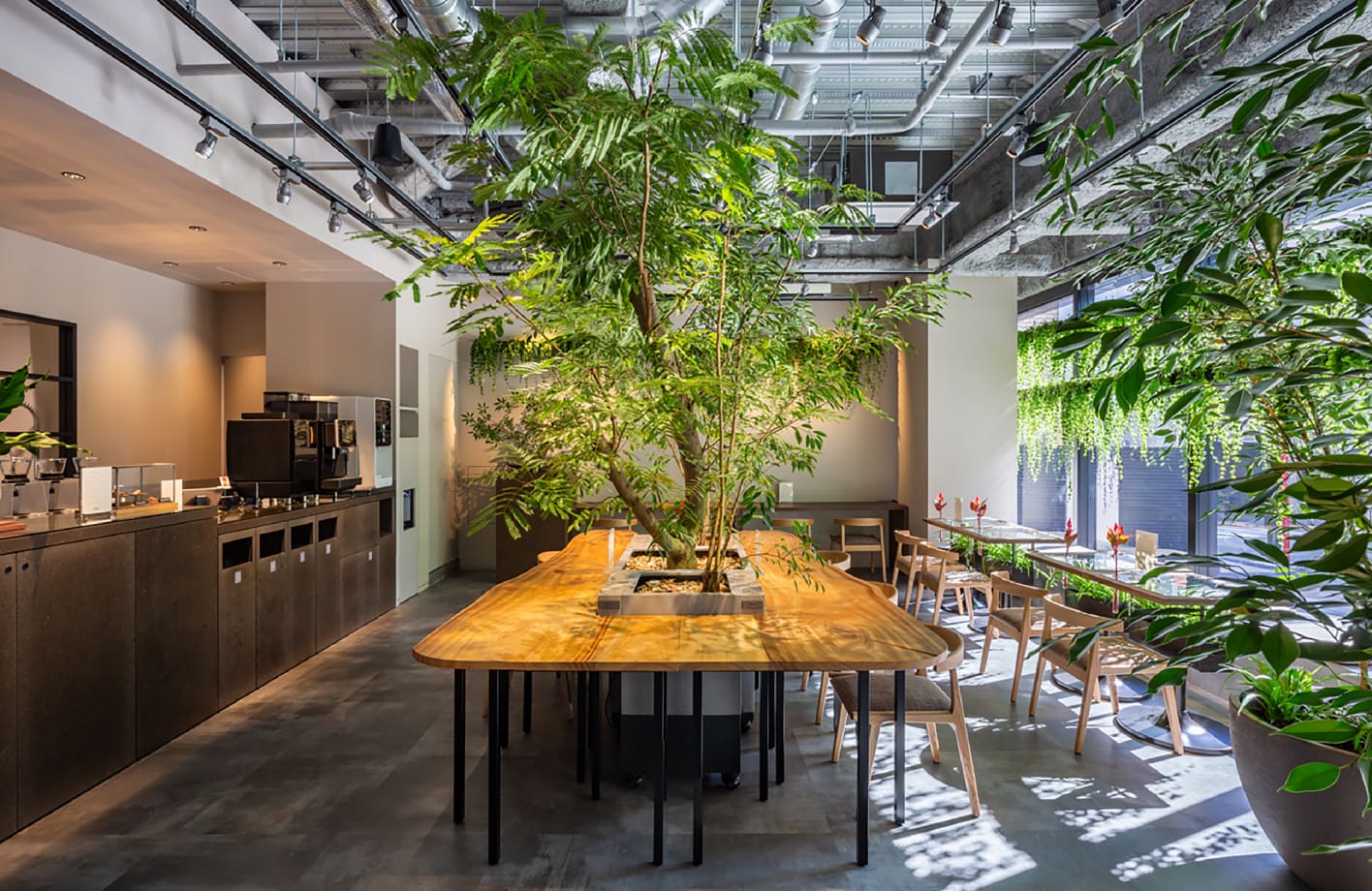
Moving on up
New ventures face challenges on many fronts as they expand, but the logistics of finding new office space can be much easier for H¹O tenants.
Career consultancy Miraif moved into H¹O Shibuya Jinnan in Tokyo during the pandemic. The ability to expand smoothly and change rooms was paramount for the firm, which was in the process of increasing its headcount.
“H¹O is flexible in that the rent is determined by the room and the number of people in it is up to you,” says Yusuke Sato, Miraif’s chief executive. “When the number of employees increased again, we decided to move from a room that accommodates nine people to one that accommodates 11. This flexibility to move rooms within H¹O is a big plus.”
Sato also appreciates the option of working in different places within the building. “I basically work in my office, but when I lose concentration, I reset by working in the space on the first floor or on the second floor where I can hear the sound of running water. The greenery there is calming and helps me concentrate.”
H¹O has 14 fully serviced sites in prime locations across central Tokyo and Osaka, with space currently available at all of them on flexible contracts. It has plans to add more offices across Japan.
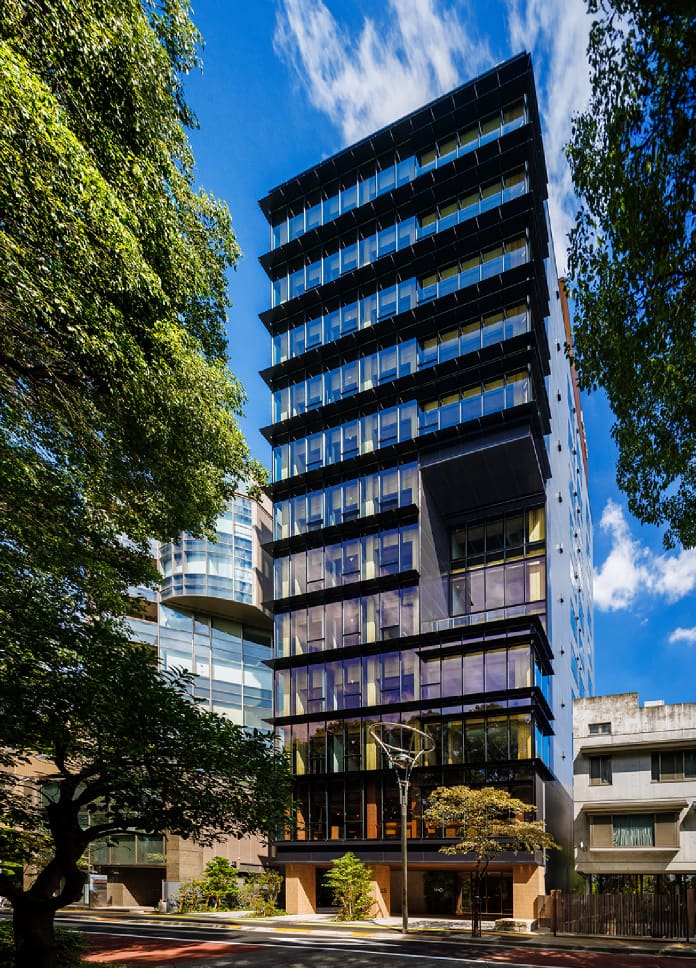
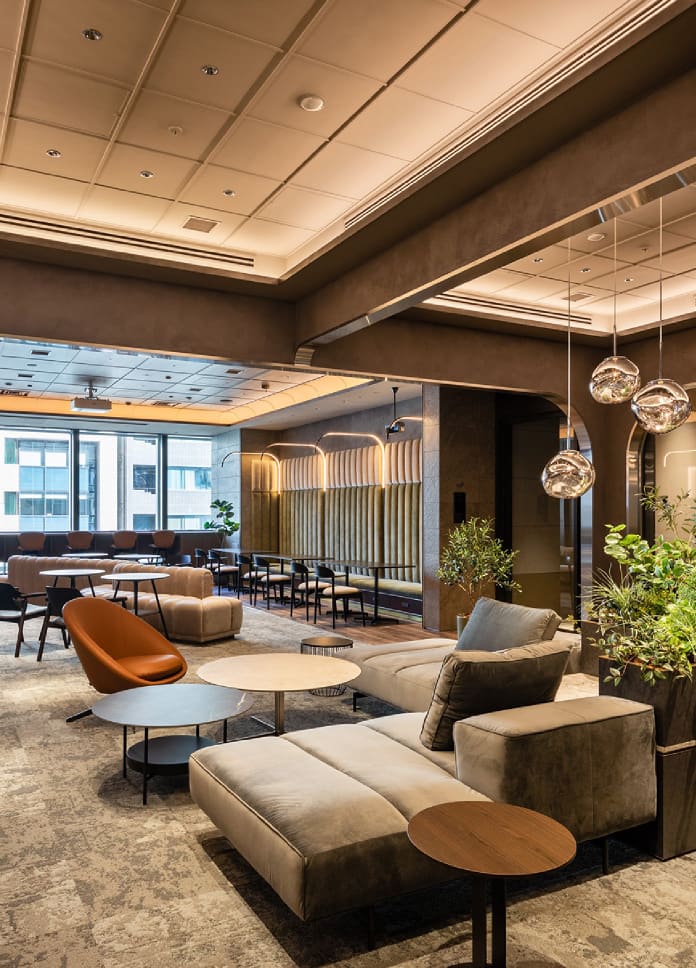
With buildings designed and constructed from scratch and an unrelenting focus on providing environments where workers can be productive and happy, the company is delivering on its creed of new-era offices that create the foundation for a fulfilling workplace for start-ups, SMEs and new entrants to the Japanese market.
